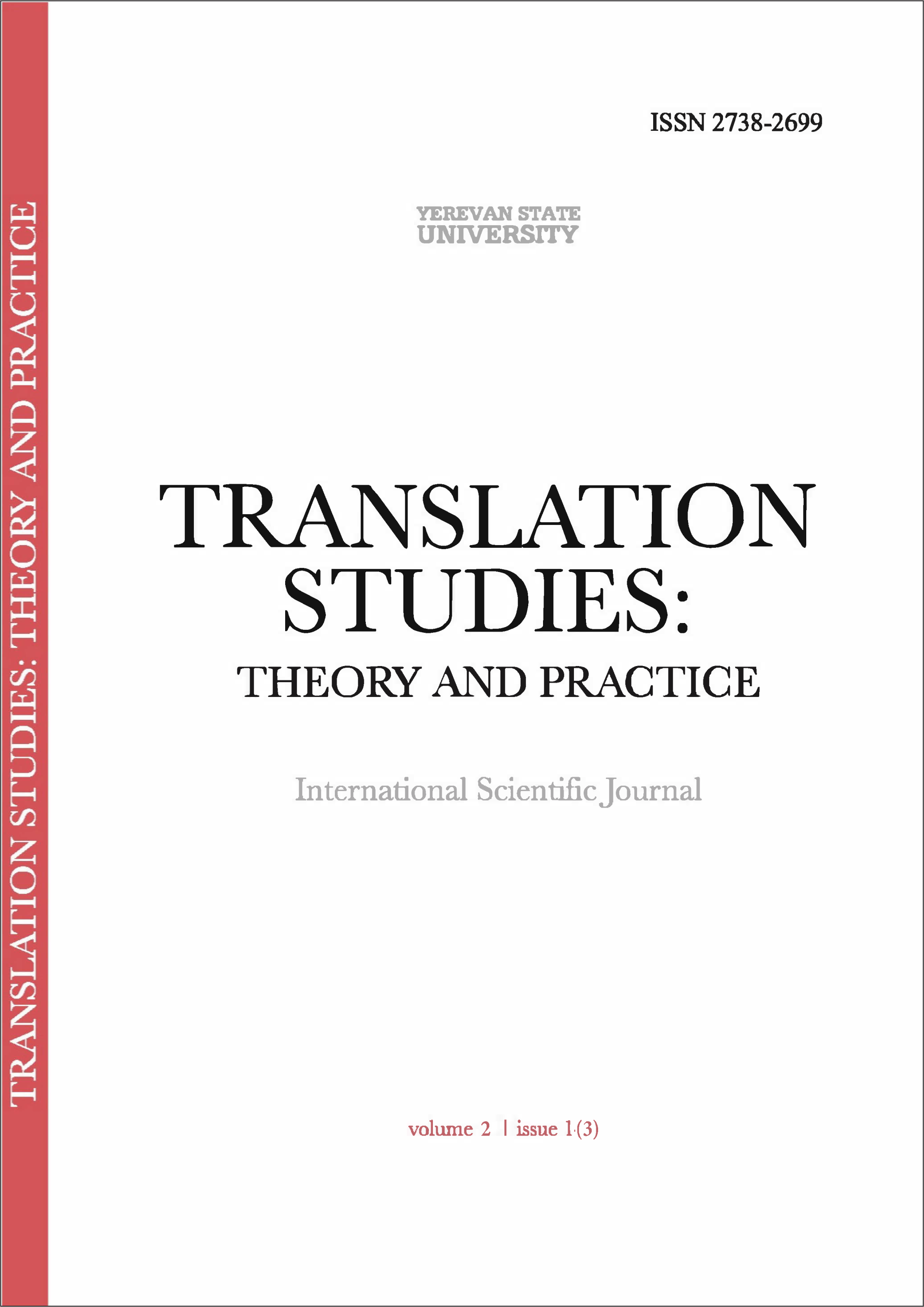Aldous Huxley’s Futuristic World from the Perspective of Its Translation Properties
DOI:
https://doi.org/10.46991/TSTP/2022.2.1.027Keywords:
dystopia, futuristic world, psychological manipulation, communicative/functional properties, transformationAbstract
The article focuses on A. Huxley's famous novel "Brave New World" and the two versions of its translation (Russian and Armenian). The aim of the analysis is identification of linguistic means specifying A. Huxley's futuristic world, the so-called World State of the XXVI century (AD 2540), a world, where psychological manipulation predominates as a method of creating a totalitarian society, its dictatorship subjugation and people’s successful standardization. The next step is the determination of communicative/functional properties of the ST and two target texts (Russian and Armenian) in order to reveal how the linguistic manifestation of the author’s worldview is transmitted into a different cultural domain to become cohesive with a different target audience. To transmit exactly A. Huxley’s futuristic world vision into a TL the translator should keep closely to the author’s philosophical conceptualization of this world and the psychological manipulation principles the authorities employ to achieve the expected impact on the fictional society.
References
Birzer, Bradley J. 2015. The Dystopian Vision of Aldous Huxley. Accessed January 10, 2022. https://theimaginativeconservative.org/2015/05/first-dystopians-aldous-huxley.html
Gabelko, A. “Shekspirovski intertekst v romane O. Khaksli “O divniy noviy mir.” Digital Repository of Minsk State Linguistic University. Accessed March 5, 2022. http://e-lib.mslu.by/handle/edoc/3604
Huxley, Aldous. 2004. Brave New World. Accessed January 12, 2022. http://scotswolf.com/aldoushuxley_bravenewworld.pdf
Huxley, Aldous. 1999. O divniy noviy mir. Translated by Soroka, Osia and Babkov, Valeriy. Accessed January 11, 2022. http://lib.ru/INOFANT/HAKSLI/mir.txt_with-big-pictures.html
Huxley, Aldous. 2017. Chqnagh nor ashkharh. Translated by Hairapetyan, Lilit. Yerevan: Zangak.
Huxley, Aldous. “Brave New World What's Up With the Title?” Shmoop. Accessed February 28, 2022. https://www.shmoop.com/study-guides/literature/brave-new-world/analysis/title
Kirsanova, K. “Shekspirovski intertekst v romane Oldosa Khaksli “O divniy noviy mir.” Accessed February 18, 2022. http://20v-euro-lit.niv.ru/20v-euro-lit/articles-angliya/kirsanova-shekspirovskij-intertekst.htm
Naughton, John. 2013. Aldous Huxley: the Prophet of Our Brave New Digital Dystopia. Accessed February 5, 2022. https://www.theguardian.com/commentisfree/2013/nov/22/aldous-huxley-prophet-dystopia-cs-lewis
Nord, Christiane. 2006. “Translation as a Purposeful Activity: A Prospective Approach.” TEFLIN Journal, 17(2), August. Accessed February 15, 2022. https://kupdf.net/download/christiane-nord-translation-as-a-purposeful-activity_59050164dc0d60dc64959e9d_pdf
Smith, Kyle. 2018. We Live in Huxley’s Dystopia, Not Orwell’s. Accessed March 3, 2022. https://www.nationalreview.com/corner/aldous-huxley-george-orwell-dystopia/
Van Dijk, Teun. 2006. “Discourse and Manipulation.” Discourse & Society Copyright © 2006 SAGE Publications, 17(2). London, Thousand Oaks, CA and New Delhi. Accessed February 20, 2022. http://www.discourses.org/OldArticles/Discourse%-20and%20manipulation.pdf
Downloads
Published
How to Cite
Issue
Section
License
Copyright (c) 2022 Gayane Gasparyan, Hasmik Grigoryan

This work is licensed under a Creative Commons Attribution-NonCommercial 4.0 International License.










